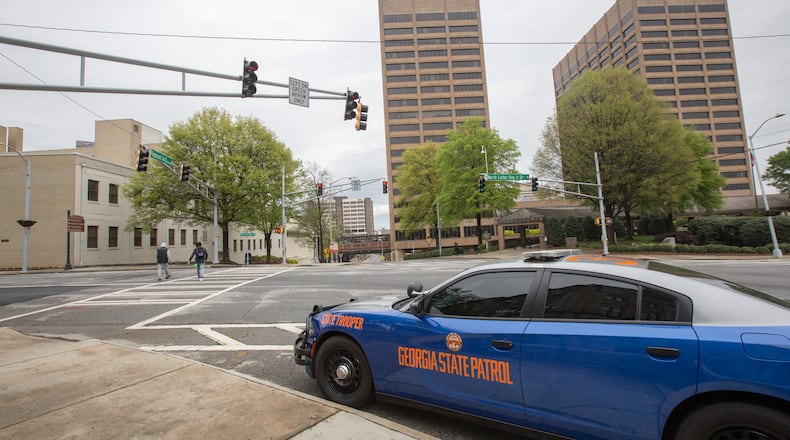A former Georgia State Patrol trooper says he worked more than 60 hours a week while in training but wasn’t paid overtime, according to a lawsuit filed this week.
Richard Andrew Justice claims he is owed $11,957.12 in back pay in the class-action lawsuit. Hundreds of others are due back pay totaling nearly $5 million, the suit states.
“My theory is that this practice has been perpetuated for so long because most of these troopers get jobs and don’t want to turn on their employers,” Augusta attorney Jeffrey Peil told The Atlanta Journal-Constitution on Tuesday.
A spokeswoman for the Georgia State Patrol confirmed that the agency was served with the lawsuit Tuesday but could not comment.
RELATED: Fired state trooper denies cheating, says recruits followed orders
Justice served as a deputy for eight years with the Richmond County Sheriff’s before being asked to join the state patrol, according to his attorneys. In January 2019, he began “trooper school” in Forsyth and was later sworn in as a member of the GSP.
“While at trooper school, Justice worked more than 40 hours every week, but was never compensated for overtime pay,” the lawsuit states. “All of Justice’s fellow trooper cadets had schedules consistent with Justice, and were similarly not compensated.”
In January, Justice was among the 30 troopers — all from GSP 106th class — fired as part of an alleged cheating scandal. The former troopers that have spoken publicly about the firings have said they were only doing what they were told.
“They were doing what their instructors were clearly telling them to do,” Attorney McCracken Poston said.
Credit: Georgia State Patrol
Credit: Georgia State Patrol
Justice had already taken one of the required exams because of his previous job as a deputy, Poston said. So GSP instructors told other cadets to use Justice as a resource, the attorney said.
“He was a person who was obviously a good officer,” Poston said. “He was selected to the state patrol. An experienced officer and one who didn’t need anybody’s help to pass the test because he had taken it before.”
Now that he is no longer a trooper, Justice’s suit calls attention to GSP’s violation of the Fair Labor Standards Act. During training, Peil said, cadets were required to begin their work days at 4:30 a.m. and logged at least 12-hour days, though they were only compensated for 40-hour work weeks.
Others who attended the trooper training in recent years are also eligible for the overtime pay, the suit contends. Justice, who is no longer working in law enforcement, is requesting a jury trial.
About the Author
The Latest
Featured



